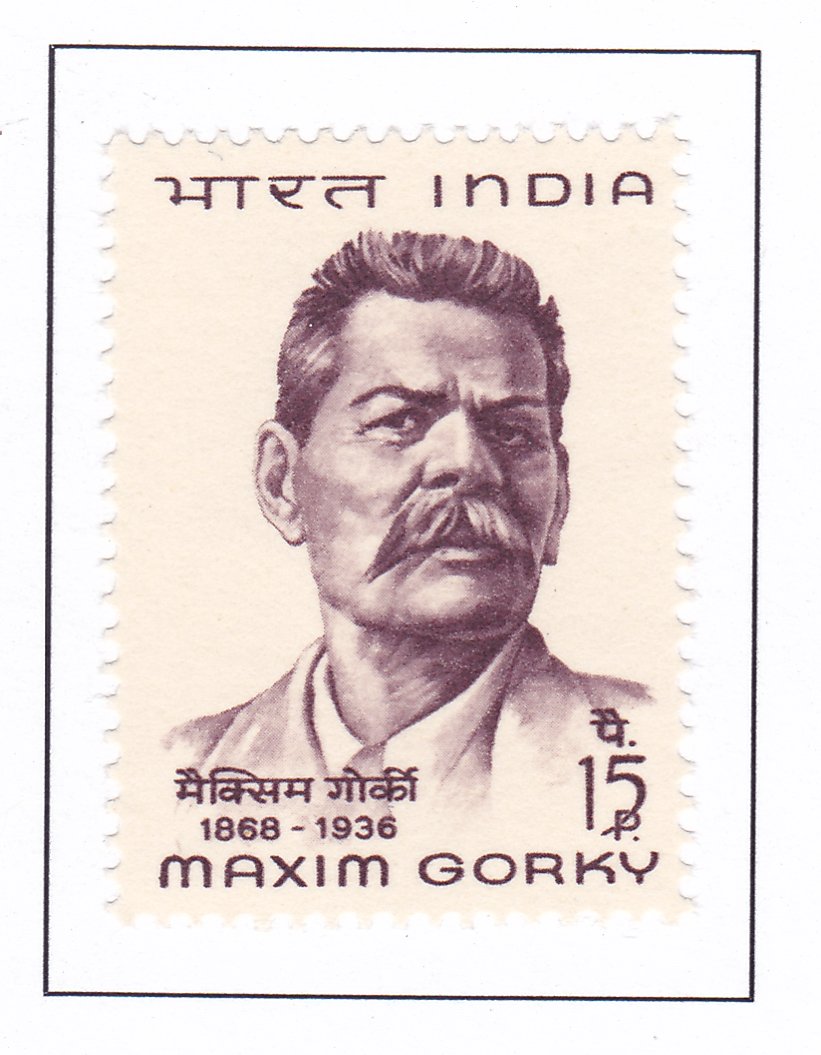MAXIM GORKY Birth Centenary

Technical Data
| Stamp Set | Birth Centenary |
|---|---|
| Date of Issue | March 28, 1968 |
| Denomination | 15 nP |
| Quantity | 2,000,000 |
| Perforation | comb 13½ |
| Printer | Security Printing Press, Nashik |
| Watermark | No Watermark |
| Colors | Plum |
| Catalog Codes |
Michel IN 447 Stamp Number IN 465 Yvert et Tellier IN 248 Stanley Gibbons IN 563 |
| Themes | Anniversaries and Jubilees | Authors | Famous people | Literary People (Poets and Writers) | Literature | Men |
Maxim Gorky’s journey from an orphaned tramp to a celebrated Russian writer is a testament to the power of resilience and the human spirit. Born in 1868 to humble parents in Nizhni Novgorod, Gorky experienced firsthand the harsh realities of pre-revolutionary Russia. Despite his lack of formal education, he developed a keen interest in literature, immersing himself in books and gaining insight into the plight of the downtrodden.
Gorky’s exposure to the suffering around him fueled both his revolutionary fervor and his literary genius. His writings vividly captured the struggles of the common people, elevating their everyday lives to the realm of high literature. His popularity soared, and he was elected to the Academy of Sciences in 1902, although the Czar annulled his election due to his revolutionary activities.
Imprisoned multiple times for his involvement in revolutionary movements, Gorky eventually left Russia after the failed 1905 Uprising. During his exile, he traveled to England and the United States before returning to Russia in 1913, where he formed a close friendship with Lenin, who was also in exile at the time.
Gorky’s literary contributions were immense, shaping the course of progressive literature in Soviet Russia and beyond. Lenin himself praised Gorky’s literary genius and his contributions to the world proletarian movement. Gorky’s works, including stories, plays, novels, and autobiographical writings, were widely translated, with his novel “Mother” standing out as one of his most acclaimed works.
Despite adopting the pseudonym “Gorky,” meaning “the bitter one,” his writings reflected not just bitterness but also a deep-seated hope for a better future. He saw in the October Revolution of 1917 the fulfillment of the aspirations of the oppressed masses. Gorky remained a revered figure in post-revolutionary Russia until his death in 1936.
The issuance of a special postage stamp by the Posts and Telegraphs Department to commemorate his birth centenary is a fitting tribute to this towering figure in socialist realism and a testament to his enduring legacy in Russian literature.
